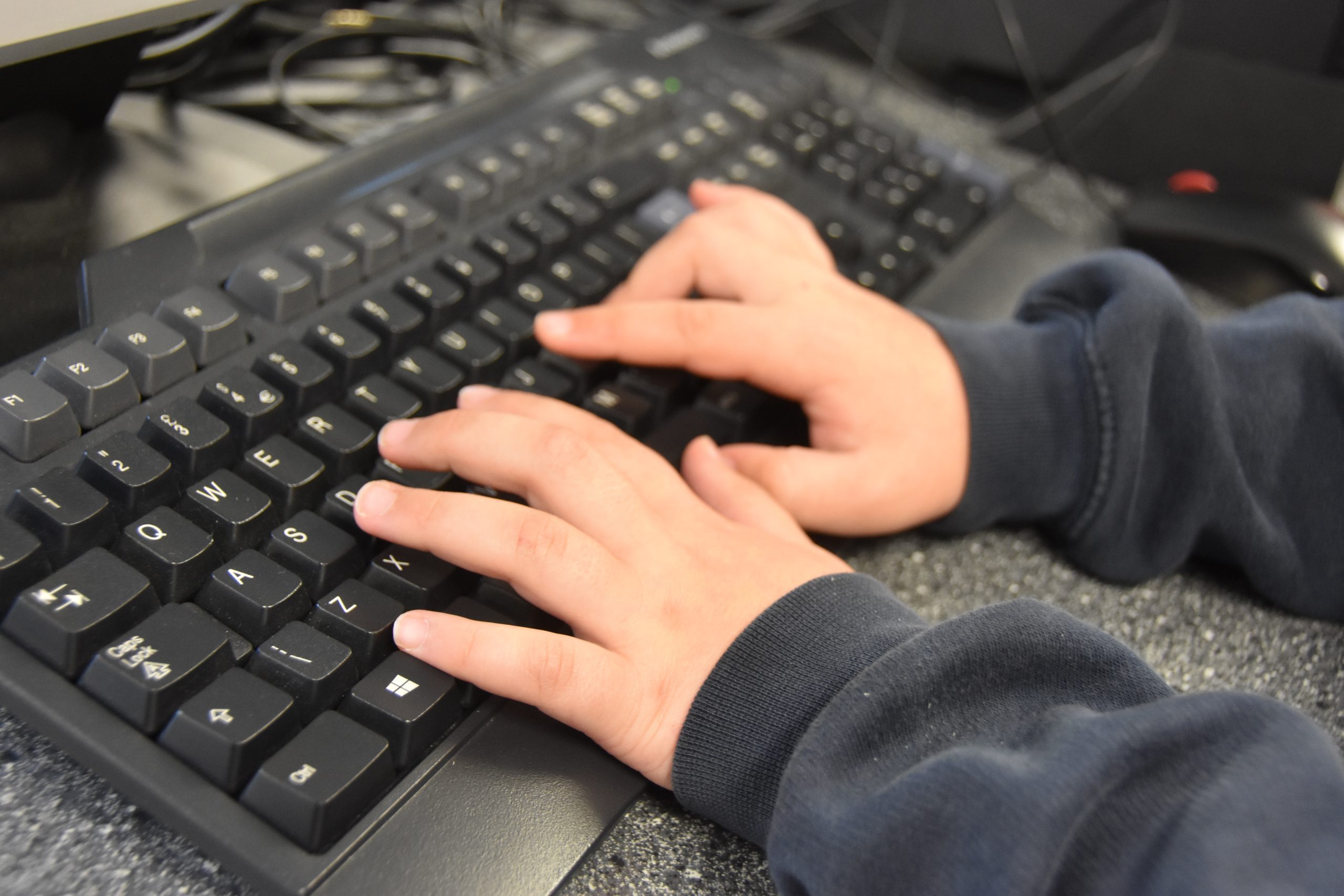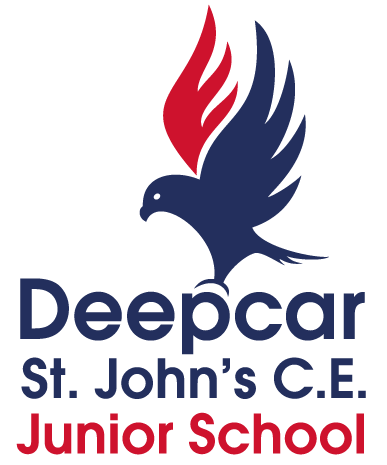Computing
Intent
Whilst at Deepcar St Johns, children will develop and be able to apply their knowledge of the three main content areas:
- Computer Science
- Information Technology
- Digital Literacy
Computer Science
Children will have a rich knowledge of computer science, understanding concepts such as algorithms and programming. They will have the foundational knowledge to understand and interpret other areas.
Information Technology
Children will have opportunities to understand the context of computers in society in different sectors and understand the methods used to create digital artefacts. Children will be confident in in using a range of applications to create different digital artefacts, their knowledge underpinning these skills. Children will also understand the profound impact computers have had on humanity.
Digital Literacy
When children leave school, they will have the skills needed to be an effective and safe user. The knowledge possessed by pupils is not assumed by teachers and we strive to ensure all children are able to safely and confidently navigate computing devices.
Implementation:
Technology is an everyday part of our children’s learning and understanding of the world.
We will build on the Key Stage 1 work on algorithms and how they are implemented as programs on digital devices and make cross-curricular links where appropriate such as science, theme and DT to enhance learning.
Children will be taught to create and debug simple programs and use logical reasoning to predict the behaviour of simple programs. We teach in semantic waves using unplugged activities to help embed knowledge enabling novices to develop expert knowledge overtime. We use unplugged activities which allow us to introduce and again embed computing concepts. We incorporate faded worked examples, where steps are removed allowing children to use their problem-solving skills. These learning experiences will increase in complexity through the school up to Y6.
In Key Stage 2 the children will design, write and debug programs that accomplish specific goals, including controlling or simulating physical systems; solve problems by decomposing them into smaller parts. They will use sequence, selection, and repetition in programs, use logical reasoning to explain how some simple algorithms work and correct errors in algorithms and programs.
Children will be taught to understand computer networks, including the internet, and the opportunities they offer for communication and collaboration. They will use search technologies effectively, learn to appreciate how results are selected and ranked, and be discerning in evaluating digital content.
Children will be taught to select, use and combine a variety of software (including internet services) on a range of digital devices to create a range of programs, systems and content that accomplish given goals.
Computer science
To ensure children have the foundational knowledge needed to succeed in Computing, as a school we are clear on the programming language we use. This vocabulary is built on as children progress through school, ensuring they understand key terms and can use this language confidently. In lessons, children are encouraged to build ‘mental models’ of what a program will do when run by analysing and predicting code.
Information technology
Children will be shown how to use a range of technology purposefully to create, organise, store, manipulate and retrieve digital content. Children will create a range of digital artefacts during their time at Deepcar St Johns such as: spreadsheets, posters, multimedia stories and radio adverts. When creating, children carefully consider the design, usability and trustworthiness of their artefact. Through creating a range of digital content, children become aware of how computing is used purposefully and its contexts beyond school, allowing children to link knowledge and create meaning. Where fitting, links are also made to the impact computers have had on humanity. This is further explored in assemblies through the year.
Digital literacy
Teachers do not make assumptions about pupils’ prior knowledge within digital literacy; they consider pupils’ levels of expertise when deciding teaching approaches. We tailor our teaching to the needs of our learners. We have found that, likely due to the increase in tablet use, many children are lacking many key technology skills required for the workplace. To enhance these skills, we have planned in the use of technology into foundation subjects to help develop these skills and better prepare our learners for later life.
They will be taught to understand the effect of their digital footprint and to use technology safely, respectfully and responsibly. The curriculum sequences knowledge related to e-safety to ensure content is age-appropriate. They will understand the need for keeping personal information private and recognise acceptable/unacceptable behaviour; identify where to go for help, support and reporting when they have concerns about content or contact on the internet or other online technologies.
Schemes
We use Sheffield Primary Computing scheme of work to guide our computing curriculum which is also supplemented by other high-quality resources to enhance learning such as Teach Computing modules. Staff receive up to date training to support their professional development and confidence in teaching. An external provider offers an after-school computing club to all year groups to help promote an enthusiasm and interest in Computing from an early age, building skills to take their technology knowledge further.
Sequencing and pedagogy
The sequencing of our content is carefully considered. Substantive (declarative) and disciplinary (procedural) knowledge is identified and sequenced to allow children to successfully embed complex ideas and processes. An example of this is the use of unplugged activities. As mentioned previously, our programming language is clear and is built on as children progress through year groups. As a school, we understand that it is not possible to teach all computing knowledge and have therefore selected the ‘key knowledge’, that we feel is the most important to set a strong foundation to learn from. To help children understand abstract, complex concepts, teaching is sequenced in ‘semantic waves’, whereby teachers link concepts to simple examples through the use of unplugged activities, metaphors and worked and faded worked examples. This in turn helps to decrease the pupil’s cognitive load.
To help with the implementation of the computing curriculum, we have a variety of hardware:
- 72 iPads
- 20 sets of Crumble
- 45 Microbits
- A computing suite
Impact:
Children will leave St John’s digitally literate and able to join the rest of the world on its digital platform. They will be equipped, not only with the skills and knowledge to use technology effectively and for their own benefit, but more importantly – safely. The biggest impact we want on our children is that they understand the consequences of using the internet and that they are also aware of how to keep themselves safe online.
As children become more confident in their abilities in Computing, they will become more independent and key life skills such as problem-solving, logical thinking and self-evaluation become second nature. We measure the impact of our curriculum through:
- Termly assessments (use of formative assessments to make summative judgements on they key skills/outcomes for the unit of work)
- Pupil voice
- Pupils using and applying their knowledge of computing to other areas of the curriculum.
Essential Learning Objectives:
- To code
- To connect
- To communicate
- To collect
Please visit our Curriculum Overview page for Subject Policies, Curriculum Booklets and Subject Information Leaflets.

